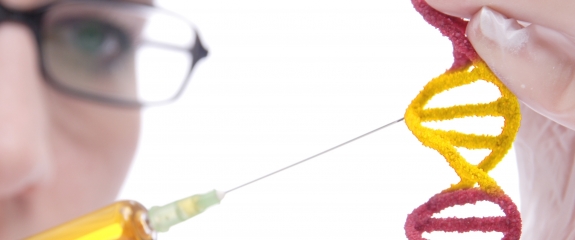Gene Editing Could Yield New Muscular Dystrophy Therapy

The controversial gene editing technique, Crispr-Cas9, could help create a treatment for muscular dystrophy, according to a new, early study published in the journal Science.
Three independent research groups from Duke University, Harvard University, and the University of Texas Southwestern Medical Center took part in the experiment on a group of mice.
Muscular dystrophy is a rare disease caused by a genetic mutation inhibiting the growth of proteins called dystrophin, which enables the production of healthy muscle mass.
The scientists “used the Crispr-Cas9 technique to treat mice with a defective dystrophin gene,” writes The New York Times.
Crispr-Cas9 inserts healthy genes in the place of defective ones to correct genetic disorders. Each group was able to remove an exon, which is a damaged stretch of DNA, reports the Times.


